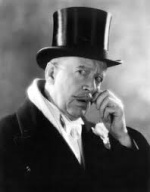Alex Ferguson' Harvard Blueprint for Football Management Success
+13
Crimson
LeSwagg James
ronalessi
lenear1030
Swanhends
RED
Art Morte
Lord Spencer
Raptorgunner
McAgger
BarrileteCosmico
M99
DeletedUser#1
17 posters
Page 1 of 1
 Alex Ferguson' Harvard Blueprint for Football Management Success
Alex Ferguson' Harvard Blueprint for Football Management Success
A legend of football management, Fergie gave a unique insight into his craft last season
Mr. Ferguson has revealed his blueprint for success in a fascinating case study into the Manchester United manager's working methods.
During last season, in what turned out to be his last in charge of United after 26 years, Ferguson granted professors from the famed Harvard Business School exclusive access to his daily routine.
The former United boss held in-depth interviews with Harvard professor Anita Elberse and allowed her to watch him in action at United’s training ground and at Old Trafford on matchdays.
Ferguson also allowed the Harvard delegate to observe him during numerous short meetings and conversations with players and staff members in the hallways, in the cafeteria, on the training pitch, and wherever else the opportunity arose.
After the case study was concluded, Ferguson visited Harvard to see it taught as well as provide his views and answering questions from students.
Here, in his own words, Ferguson gives his verdict on what makes a great manager and the approach for sustained success at a club:
Mr. Ferguson has revealed his blueprint for success in a fascinating case study into the Manchester United manager's working methods.
During last season, in what turned out to be his last in charge of United after 26 years, Ferguson granted professors from the famed Harvard Business School exclusive access to his daily routine.
The former United boss held in-depth interviews with Harvard professor Anita Elberse and allowed her to watch him in action at United’s training ground and at Old Trafford on matchdays.
Ferguson also allowed the Harvard delegate to observe him during numerous short meetings and conversations with players and staff members in the hallways, in the cafeteria, on the training pitch, and wherever else the opportunity arose.
After the case study was concluded, Ferguson visited Harvard to see it taught as well as provide his views and answering questions from students.
Here, in his own words, Ferguson gives his verdict on what makes a great manager and the approach for sustained success at a club:
Ferguson: “From the moment I got to Manchester United, I thought of only one thing: building a football club. I wanted to build right from the bottom.
“That was in order to create fluency and a continuity of supply to the first team. With this approach, the players all grow up together, producing a bond that, in turn, creates a spirit.
“When I arrived, only one player on the first team was under 24. Can you imagine that, for a club like Manchester United?
“I knew that a focus on youth would fit the club’s history, and my earlier coaching experience told me that winning with young players could be done and that I was good at working with them.
“So I had the confidence and conviction that if United was going to mean anything again, rebuilding the youth structure was crucial. You could say it was brave, but fortune favors the brave.
The first thought of 99% of newly appointed managers is to make sure they win—to survive. So they bring experienced players in. That’s simply because we’re in a results-driven industry.
“At some clubs, you need only to lose three games in a row, and you’re fired. In today’s football world, with a new breed of directors and owners, I am not sure any club would have the patience to wait for a manager to build a team over a four-year period.
“Winning a game is only a short-term gain—you can lose the next game. Building a club brings stability and consistency.
“You don’t ever want to take your eyes off the first team, but our youth development efforts ended up leading to our many successes in the 1990s and early 2000s. The young players really became the spirit of the club.
“I always take great pride in seeing younger players develop. The job of a manager, like that of a teacher, is to inspire people to be better. Give them better technical skills, make them winners, make them better people, and they can go anywhere in life.
“When you give young people a chance, you not only create a longer life span for the team, you also create loyalty. They will always remember that you were the manager who gave them their first opportunity.
“Once they know you are batting for them, they will accept your way. You’re really fostering a sense of family. If you give young people your attention and an opportunity to succeed, it is amazing how much they will surprise you
“We identified three levels of players: those 30 and older, those roughly 23 to 30, and the younger ones coming in. The idea was that the younger players were developing and would meet the standards that the older ones had set.
“Although I was always trying to disprove it, I believe that the cycle of a successful team lasts maybe four years, and then some change is needed. So we tried to visualize the team three or four years ahead and make decisions accordingly.
“Because I was at United for such a long time, I could afford to plan ahead—no one expected me to go anywhere. I was very fortunate in that respect.
The goal was to evolve gradually, moving older players out and younger players in. It was mainly about two things: First, who did we have coming through and where did we see them in three years’ time, and second, were there signs that existing players were getting older?
“Some players can go on for a long time, like Ryan Giggs, Paul Scholes, and Rio Ferdinand, but age matters. The hardest thing is to let go of a player who has been a great guy—but all the evidence is on the field.
“If you see the change, the deterioration, you have to ask yourself what things are going to be like two years ahead.
“Everything we did was about maintaining the standards we had set as a football club—this applied to all my team building and all my team preparation, motivational talks, and tactical talks.
“For example, we never allowed a bad training session. What you see in training manifests itself on the game field. So every training session was about quality. We didn’t allow a lack of focus.
“It was about intensity, concentration, speed—a high level of performance. That, we hoped, made our players improve with each session.
I had to lift players’ expectations. They should never give in. I said that to them all the time: “If you give in once, you’ll give in twice.” And the work ethic and energy I had seemed to spread throughout the club.
“I used to be the first to arrive in the morning. In my later years, a lot of my staff members would already be there when I got in at 7 AM. I think they understood why I came in early—they knew there was a job to be done. There was a feeling that “if he can do it, then I can do it.”
I constantly told my squad that working hard all your life is a talent. But I expected even more from the star players. I expected them to work even harder. I said, “You’ve got to show that you are the top players.” And they did. That’s why they are star players—they are prepared to work harder.
“Superstars with egos are not the problem some people may think. They need to be winners, because that massages their egos, so they will do what it takes to win. I used to see [Cristiano] Ronaldo [one of the world’s top forwards, who now plays for Real Madrid], Beckham, Giggs, Scholes, and others out there practicing for hours.
“I’d have to chase them in. I’d be banging on the window saying, “We’ve got a game on Saturday.” But they wanted the time to practice. They realized that being a Manchester United player is not an easy job.
"If the day came that the manager of Manchester United was controlled by the players—in other words, if the players decided how the training should be, what days they should have off, what the discipline should be, and what the tactics should be—then Manchester United would not be the Manchester United we know.
“Before I came to United, I told myself I wasn’t going to allow anyone to be stronger than I was. Your personality has to be bigger than theirs. That is vital.
“There are occasions when you have to ask yourself whether certain players are affecting the dressing-room atmosphere, the performance of the team, and your control of the players and staff. If they are, you have to cut the cord.
“There is absolutely no other way. It doesn’t matter if the person is the best player in the world. The long-term view of the club is more important than any individual, and the manager has to be the most important one in the club.
“Some English clubs have changed managers so many times that it creates power for the players in the dressing room. That is very dangerous. If the coach has no control, he will not last. You have to achieve a position of comprehensive control.
“Players must recognize that as the manager, you have the status to control events. You can complicate your life in many ways by asking, “Oh, I wonder if the players like me?” If I did my job well, the players would respect me, and that’s all you need.
“I tended to act quickly when I saw a player become a negative influence. Some might say I acted impulsively, but I think it was critical that I made up my mind quickly. Why should I have gone to bed with doubts? I would wake up the next day and take the necessary steps to maintain discipline.
“It’s important to have confidence in yourself to make a decision and to move on once you have. It’s not about looking for adversity or for opportunities to prove power; it’s about having control and being authoritative when issues do arise.
“No-one likes to be criticized. Few people get better with criticism; most respond to encouragement instead. So I tried to give encouragement when I could. For a player—for any human being—there is nothing better than hearing “Well done.” Those are the two best words ever invented. You don’t need to use superlatives.
“At the same time, in the dressing room, you need to point out mistakes when players don’t meet expectations. That is when reprimands are important. I would do it right after the game. I wouldn’t wait until Monday. I’d do it, and it was finished. I was on to the next match. There is no point in criticizing a player forever.
“Generally, my pregame talks were about our expectations, the players’ belief in themselves, and their trust in one another. I liked to refer to a working-class principle. Not all players come from a working-class background, but maybe their fathers do, or their grandfathers, and I found it useful to remind players how far they have come.
“I would tell them that having a work ethic is very important. It seemed to enhance their pride. I would remind them that it is trust in one another, not letting their mates down, that helps build the character of a team.
“In our training sessions, we tried to build a football team with superb athletes who were smart tactically. If you are too soft in your approach, you won’t be able to achieve that. Fear has to come into it. But you can be too hard; if players are fearful all the time, they won’t perform well either. As I’ve gotten older, I’ve come to see that showing your anger all the time doesn’t work. You have to pick your moments. As a manager, you play different roles at different times. Sometimes you have to be a doctor, or a teacher, or a father.
“Winning is in my nature. I’ve set my standards over such a long period of time that there is no other option for me—I have to win. I expected to win every time we went out there. Even if five of the most important players were injured, I expected to win.
“Other teams get into a huddle before the start of a match, but I did not do that with my team. Once we stepped onto the pitch before a game, I was confident that the players were prepared and ready to play, because everything had been done before they walked out onto the pitch.
“I am a gambler—a risk taker—and you can see that in how we played in the late stages of matches. If we were down at half-time, the message was simple: 'Don’t panic'. Just concentrate on getting the task done. If we were still down—say, 1–2—with 15 minutes to go, I was ready to take more risks. I was perfectly happy to lose 1–3 if it meant we’d given ourselves a good chance to draw or to win. So in those last 15 minutes, we’d go for it. We’d put in an extra attacking player and worry less about defence. We knew that if we ended up winning 3–2, it would be a fantastic feeling. And if we lost 1–3, we’d been losing anyway.
“Being positive and adventurous and taking risks—that was our style. We were there to win the game. Our supporters understood that, and they got behind it. It was a wonderful feeling, you know, to see us go for it in those last 15 minutes. A bombardment in the box, bodies everywhere, players putting up a real fight. Of course, you can lose on the counter-attack, but the joy of winning when you thought you were beaten is fantastic.
“I think all my teams had perseverance—they never gave in. So I didn’t really need to worry about getting that message across. It’s a fantastic characteristic to have, and it is amazing to see what can happen in the dying seconds of a match.
“Observation is the final part of my management structure. When I started as a coach, I relied on several basics: that I could play the game well, that I understood the technical skills needed to succeed at the highest level, that I could coach players, and that I had the ability to make decisions.
“One afternoon at Aberdeen I had a conversation with my assistant manager while we were having a cup of tea. He said, “I don’t know why you brought me here.” I said, “What are you talking about?” and he replied, “I don’t do anything. I work with the youth team, but I’m here to assist you with the training and with picking the team. That’s the assistant manager’s job.”
“And another coach said, “I think he’s right, boss,” and pointed out that I could benefit from not always having to lead the training. At first I said, “No, no, no,” but I thought it over for a few days and then said, “I’ll give it a try. No promises.” Deep down I knew he was right. So I delegated the training to him, and it was the best thing I ever did.
“It didn’t take away my control. My presence and ability to supervise were always there, and what you can pick up by watching is incredibly valuable. Once I stepped out of the bubble, I became more aware of a range of details, and my performance level jumped.
“Seeing a change in a player’s habits or a sudden dip in his enthusiasm allowed me to go further with him: Is it family problems? Is he struggling financially? Is he tired? What kind of mood is he in? Sometimes I could even tell that a player was injured when he thought he was fine.
“I don’t think many people fully understand the value of observing. I came to see observation as a critical part of my management skills. The ability to see things is key—or, more specifically, the ability to see things you don’t expect to see.
“When I started, there were no agents, and although games were televised, the media did not elevate players to the level of film stars and constantly look for new stories about them. Stadiums have improved, pitches are in perfect condition now, and sports science has a strong influence on how we prepare for the season.
“Owners from Russia, the Middle East, and other regions have poured a lot of money into the game and are putting pressure on managers. And players have led more-sheltered lives, so they are much more fragile than players were 25 years ago.
“One of the things I’ve done well over the years is manage change. I believe that you control change by accepting it. That also means having confidence in the people you hire. The minute staff members are employed, you have to trust that they are doing their jobs. If you micromanage and tell people what to do, there is no point in hiring them.
“The most important thing is to not stagnate. I said to David Gill a few years ago, “The only way we can keep players at Manchester United is if we have the best training ground in Europe.” That is when we kick-started the medical centre. We can’t sit still.
“Most people with my kind of track record don’t look to change. But I always felt I couldn’t afford not to change. We had to be successful—there was no other option for me—and I would explore any means of improving. I continued to work hard. I treated every success as my first. My job was to give us the best possible chance of winning. That is what drove me.”
DeletedUser#1- Fan Favorite

- Club Supported :

Posts : 5155
Join date : 2012-12-06

M99- Forum Legend

- Club Supported :

Posts : 30391
Join date : 2011-06-06
Age : 101
 Re: Alex Ferguson' Harvard Blueprint for Football Management Success
Re: Alex Ferguson' Harvard Blueprint for Football Management Success
Previously posted under
http://www.goallegacy.net/t26386-why-there-will-never-be-another-sir-alex-ferguson
But I'll keep it as is because it seems not many people read it the first time around
http://www.goallegacy.net/t26386-why-there-will-never-be-another-sir-alex-ferguson
But I'll keep it as is because it seems not many people read it the first time around

BarrileteCosmico- Admin

- Club Supported :

Posts : 28292
Join date : 2011-06-05
Age : 33
 Re: Alex Ferguson' Harvard Blueprint for Football Management Success
Re: Alex Ferguson' Harvard Blueprint for Football Management Success
Fantastic read. It goes to show that success in anything is always rooted from the fundamental basics.

McAgger- Ballon d'Or Contender

- Club Supported :

Posts : 28318
Join date : 2011-06-05
Age : 107
 Re: Alex Ferguson' Harvard Blueprint for Football Management Success
Re: Alex Ferguson' Harvard Blueprint for Football Management Success
Great read.

“I am a gambler—a risk taker—and you can see that in how we played in the late stages of matches. If we were down at half-time, the message was simple: 'Don’t panic'. Just concentrate on getting the task done. If we were still down—say, 1–2—with 15 minutes to go, I was ready to take more risks.


Raptorgunner- World Class Contributor

- Club Supported :

Posts : 18057
Join date : 2011-06-05
 Re: Alex Ferguson' Harvard Blueprint for Football Management Success
Re: Alex Ferguson' Harvard Blueprint for Football Management Success
Excellent read.
It really shows why SAF is simply the best football manager of all time. He simply understood the game well, and played it to the best of his potential.
It really shows why SAF is simply the best football manager of all time. He simply understood the game well, and played it to the best of his potential.

Lord Spencer- First Team

- Club Supported :

Posts : 4504
Join date : 2011-06-23
 Re: Alex Ferguson' Harvard Blueprint for Football Management Success
Re: Alex Ferguson' Harvard Blueprint for Football Management Success
A very fine read indeed.

Art Morte- Forum legendest
- Club Supported :

Posts : 18314
Join date : 2011-06-05
Age : 38
 Re: Alex Ferguson' Harvard Blueprint for Football Management Success
Re: Alex Ferguson' Harvard Blueprint for Football Management Success
Great read, but it makes me slightly depressed knowing that he isn't the United manager anymore.

RED- World Class Contributor

- Club Supported :

Posts : 10249
Join date : 2011-06-05
 Re: Alex Ferguson' Harvard Blueprint for Football Management Success
Re: Alex Ferguson' Harvard Blueprint for Football Management Success
Dat attention to detail ffs...Fergie tha gawd 


Swanhends- Fan Favorite

- Club Supported :

Posts : 8451
Join date : 2011-06-05
 Re: Alex Ferguson' Harvard Blueprint for Football Management Success
Re: Alex Ferguson' Harvard Blueprint for Football Management Success
So did he tell all this stuff to Moyes or nah?

lenear1030- First Team

- Club Supported :

Posts : 2881
Join date : 2011-06-05
 Re: Alex Ferguson' Harvard Blueprint for Football Management Success
Re: Alex Ferguson' Harvard Blueprint for Football Management Success
Moyes is enrolled in Harvard's distance education program for Football Management.

ronalessi- First Team

- Posts : 1292
Join date : 2011-06-05
Age : 112
 Re: Alex Ferguson' Harvard Blueprint for Football Management Success
Re: Alex Ferguson' Harvard Blueprint for Football Management Success
I don't see why 99% of managers wouldn't know this? Sounds like common sense to me..

LeSwagg James- Fan Favorite

- Club Supported :

Posts : 6587
Join date : 2011-06-06
 Re: Alex Ferguson' Harvard Blueprint for Football Management Success
Re: Alex Ferguson' Harvard Blueprint for Football Management Success
I read the pdf and thought it was pretty shit Man Utd propaganda tbh, but eh

Crimson- Hot Prospect

- Posts : 280
Join date : 2013-05-20
 Re: Alex Ferguson' Harvard Blueprint for Football Management Success
Re: Alex Ferguson' Harvard Blueprint for Football Management Success
I actually agree that it was common sense. No big secrets there. But a) that 99% figure of yours over-estimates football managers. It's a job you are able to get with minimal qualifications, basically if you've been a professional player on your day and have just done your coaching licenses, you're within a shot to get to try your wings at management. And b) implementing common sense, simple stuff is often much easier said than done effectively.Swagg wrote:I don't see why 99% of managers wouldn't know this? Sounds like common sense to me..

Art Morte- Forum legendest
- Club Supported :

Posts : 18314
Join date : 2011-06-05
Age : 38
 Re: Alex Ferguson' Harvard Blueprint for Football Management Success
Re: Alex Ferguson' Harvard Blueprint for Football Management Success
i think it is like physics, maths or chemistry...open to all, available to all. You just need to know how to use them and when to use what formulas, what concepts, what compounds to get the required results.
Helmer- Fan Favorite

- Club Supported :

Posts : 9965
Join date : 2012-08-15
 Re: Alex Ferguson' Harvard Blueprint for Football Management Success
Re: Alex Ferguson' Harvard Blueprint for Football Management Success
Very interesting. It shows how much stability is worth , both to a manager and for his team . He had a certain attitude of course and regardless of how he would come out , he actualy proved it was for the best of his team.
I agree with many things he said . Managers must have a certain , prevailing type of character to manage a club at such high levels. Especialy interesting is how he kept confirming that , again and again with the passage of time . Thankfully , he was lucky enough to be trusted for a long period and the results are there for everyone .
I always thought that there must be teams who could follow a similar road to that of Manchester with Ferguson. Do you think any club would be willing to adopt such a long term project with a coach ? There's Wenger with Arsenal of course , another example and he's been there since what 1994-5-6 ? anyway , imo best choice they ever made . Although, his project with Arsenal begun during a very different time compared to today's football , close to that of Ferguson actualy . Things are much more harder for managers today , obviously.
But are clubs today so open minded ( don't really know how to put it , deep down it's a big ask for top clubs ) to give a manager so much responsibility , planning and power into his hands? Kinda hard for a management to agree on that , even though for both Manchester and Arsenal , it had very positive effects. There was that coach from W.Bremen , can't recall his name , the one with the stache ..
..
Could it happen again , perhaps for managers to stay for 5-6 years minimum and be considered as normal ? Was Ferguson the example or just one of the few exceptions that prove the rule ? After all , even himself said a succesfull period is about 4 years time and coaches tend not to stay longer than that. Some don't even see a 2nd year's eve actualy
I agree with many things he said . Managers must have a certain , prevailing type of character to manage a club at such high levels. Especialy interesting is how he kept confirming that , again and again with the passage of time . Thankfully , he was lucky enough to be trusted for a long period and the results are there for everyone .
I always thought that there must be teams who could follow a similar road to that of Manchester with Ferguson. Do you think any club would be willing to adopt such a long term project with a coach ? There's Wenger with Arsenal of course , another example and he's been there since what 1994-5-6 ? anyway , imo best choice they ever made . Although, his project with Arsenal begun during a very different time compared to today's football , close to that of Ferguson actualy . Things are much more harder for managers today , obviously.
But are clubs today so open minded ( don't really know how to put it , deep down it's a big ask for top clubs ) to give a manager so much responsibility , planning and power into his hands? Kinda hard for a management to agree on that , even though for both Manchester and Arsenal , it had very positive effects. There was that coach from W.Bremen , can't recall his name , the one with the stache
Could it happen again , perhaps for managers to stay for 5-6 years minimum and be considered as normal ? Was Ferguson the example or just one of the few exceptions that prove the rule ? After all , even himself said a succesfull period is about 4 years time and coaches tend not to stay longer than that. Some don't even see a 2nd year's eve actualy

Dante- Fan Favorite

- Club Supported :

Posts : 5460
Join date : 2011-07-09
Age : 33
 Re: Alex Ferguson' Harvard Blueprint for Football Management Success
Re: Alex Ferguson' Harvard Blueprint for Football Management Success
And is anyone applying the Fergie wisdom to Football Manager?lenear1030 wrote:So did he tell all this stuff to Moyes or nah?

lenear1030- First Team

- Club Supported :

Posts : 2881
Join date : 2011-06-05
 Re: Alex Ferguson' Harvard Blueprint for Football Management Success
Re: Alex Ferguson' Harvard Blueprint for Football Management Success
Hardly a 'blueprint', it is basically common sense with an ability to motivate players. Sure he was successful but it was a very different game back then and he had huge amounts of time to transform the club, something that would never happen now. Also, once you have built a solid team does it actually take much to keep them fighting? i mean that scrub Di Matteo won the CL and FA cup with an ageing chelsea team. Food for thought.

Grooverider- Banned (Permanent)
- Posts : 571
Join date : 2013-02-10
 Re: Alex Ferguson' Harvard Blueprint for Football Management Success
Re: Alex Ferguson' Harvard Blueprint for Football Management Success
Great read. The manager is a legend, he knows what hes doing...
Although I feel a bit unfair that Harvard ppl get to learn this shit only, what about the rest of us Are they paying Fergie for this?
Are they paying Fergie for this?
Although I feel a bit unfair that Harvard ppl get to learn this shit only, what about the rest of us

BarcaLearning- Fan Favorite

- Club Supported :

Posts : 8976
Join date : 2011-12-08
 Re: Alex Ferguson' Harvard Blueprint for Football Management Success
Re: Alex Ferguson' Harvard Blueprint for Football Management Success
It will be in the October edition of the Harvard Business Review.

ronalessi- First Team

- Posts : 1292
Join date : 2011-06-05
Age : 112
 Re: Alex Ferguson' Harvard Blueprint for Football Management Success
Re: Alex Ferguson' Harvard Blueprint for Football Management Success
Oh goodronalessi wrote:It will be in the October edition of the Harvard Business Review.

BarcaLearning- Fan Favorite

- Club Supported :

Posts : 8976
Join date : 2011-12-08
 Similar topics
Similar topics» the bitter spanish waiter..
» Did Alex Ferguson introduce new football concepts/tactics?
» 1000 Games for Sir Alex Ferguson
» Sir Alex Ferguson and referees selection
» Sir Alex Ferguson wants Marchisio...
» Did Alex Ferguson introduce new football concepts/tactics?
» 1000 Games for Sir Alex Ferguson
» Sir Alex Ferguson and referees selection
» Sir Alex Ferguson wants Marchisio...
Page 1 of 1
Permissions in this forum:
You cannot reply to topics in this forum|
|
|








» 23/24 UCL Knockout Stage
» The TV Series Thread - Part 5
» eFootball
» Top 10 Players of 2023/24
» The Official Dwayne Wade <<<<<< you thread
» The Last of Us (HBO)
» La Liga 2023/24
» Mbappe may be headed to EPL
» The Official Real Madrid 23 - 24 Matchday Thread
» The Offical Rap Thread Part 3
» Europa League 2023/24
» The US Politics Thread